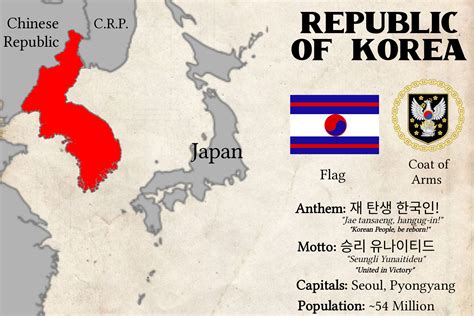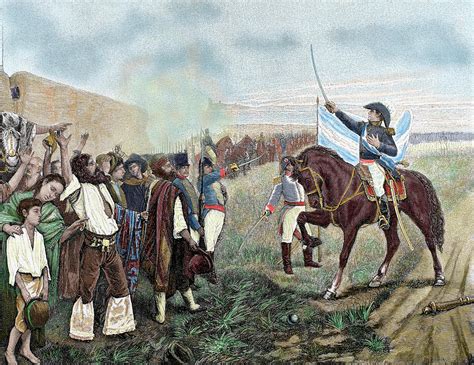Explore the geographical origins, early human settlements, Arab traders’ influence, colonial era impact, and modern history in this insightful blog post on historical development.
Geographical Origins
Contents
Madagascar, an island located in the Indian Ocean off the southeastern coast of Africa, is the fourth-largest island in the world. Its geographical origins can be traced back to its separation from the Indian subcontinent approximately 88 million years ago. This separation from the mainland allowed for the evolution of unique flora and fauna on the island, contributing to its status as a biodiversity hotspot.
The island’s diverse landscapes, including rainforests, high plateaus, and coastal plains, have been shaped by volcanic activity and tectonic movements over millions of years. The presence of various microclimates and ecosystems has made Madagascar a truly unique and environmentally rich location.
Furthermore, the island’s position along major oceanic trade routes has attracted visitors and settlers from distant lands, contributing to its cultural and ethnic diversity. The influence of these diverse cultures is evident in the island’s language, cuisine, traditions, and customs.
Overall, Madagascar’s geographical origins have played a crucial role in shaping its natural environment, biodiversity, and cultural heritage, making it a fascinating and distinct destination for exploration and study.
Early Human Settlements
Madagascar is a land with a rich history, with evidence of early human settlements dating back to as early as 2,000 years ago. The island was likely first settled by seafaring people from Southeast Asia, who arrived around 500 A.D. These early settlers brought with them their unique culture and traditions, which would come to have a profound influence on the island’s development.
The arrival of the first human inhabitants marked the beginning of a new chapter in Madagascar’s history. These early settlers lived in small, isolated communities, and they thrived in the island’s diverse and unique environment. They practiced traditional forms of agriculture, relying on the fertile land to grow crops and raise animals. Over time, these early settlements grew and expanded, leading to the emergence of distinct ethnic groups and societies across the island.
As these early communities continued to develop, they formed complex social structures and systems of governance. The island’s first kingdoms and chiefdoms began to emerge, each with its own unique customs and traditions. It was during this time that the Malagasy people began to establish their own cultural identity, blending elements of their Southeast Asian roots with the diverse influences of the island’s natural environment.
The early human settlements in Madagascar laid the foundation for the island’s rich and diverse cultural heritage, which can still be seen in the traditions and customs of the Malagasy people today. From their agricultural practices to their unique art forms and traditional beliefs, the legacy of these early settlers continues to shape the identity of the island and its people.
Influence of Arab Traders
TheArab traders played a significant role in the history of Madagascar, particularly in the realms of culture, religion, and trade. During the medieval period, Arab merchants established trade routes across the Indian Ocean, connecting Madagascar with the wider world. They brought goods such as spices, textiles, and precious metals, introducing new products and technologies to the island. The exchange of goods and ideas with the Arab world had a lasting impact on the development of Madagascar’s economy and society.
In addition to trade, theArab traders also brought with them their religion, Islam. The spread of Islam in Madagascar can be attributed to the influence of Arab traders and their interactions with local communities. As a result, Islamic traditions, customs, and beliefs became integrated into the cultural fabric of the island, shaping its religious practices and spiritual life. The legacy of Arab traders in Madagascar is evident in the presence of mosques, Islamic schools, and the adoption of Arabic language and script.
Furthermore, the influence of Arab traders extended beyond economics and religion, encompassing the realm of language and literature. The Arabic language became an important medium of communication, leading to the incorporation of Arabic loanwords into the Malagasy language. Moreover, Arab traders contributed to the dissemination of written texts and intellectual knowledge, introducing Madagascar to the world of literature, poetry, and scholarship.
In conclusion, theArab traders left a lasting imprint on the history and culture of Madagascar through their contributions to trade, religion, language, and intellectual exchange. Their interactions with the island had a transformative effect, shaping the identity and heritage of Madagascar in profound ways, and their legacy continues to be felt in the modern era.
Colonial Era Impact
During the Colonial Era, Madagascar experienced significant changes and upheavals as a result of European colonization. The island was first colonized by the Portuguese in the early 16th century, followed by the French and British, who both sought to exploit Madagascar’s rich resources for their own economic gain.
The impact of colonization on Madagascar was profound, with widespread social, political, and economic consequences that still reverberate today. The island’s traditional social structures were disrupted, and many Malagasy people were forced into labor for the colonizers, leading to the exploitation and marginalization of the local population.
Politically, Madagascar also underwent significant changes during the Colonial Era. The island was ruled as a French colony from the late 19th century until gaining independence in 1960. The French imposed their own administrative system and laws, further eroding traditional Malagasy institutions and customs.
| Colonial Era Impact | Significance |
|---|---|
| Disruption of Social Structures | Loss of traditional ways of life |
| Economic Exploitation | Forced labor and resource extraction |
| Political Imposition | French colonial rule and administrative system |
The Colonial Era also saw the introduction of Christianity to Madagascar, as well as the establishment of missionary schools and hospitals. While these developments had a lasting impact on the religious and educational landscape of the island, they also contributed to the erosion of traditional Malagasy culture and beliefs.
In conclusion, the Colonial Era had a profound and lasting impact on Madagascar, shaping its social, political, and economic history in significant ways. The legacy of colonization still influences the country’s development and identity to this day.
Independence and Modern History
Madagascar gained its independence from France on June 26, 1960, after almost 70 years of colonial rule. This marked the beginning of a new era in the country’s history, as it sought to establish itself as a sovereign nation. The early years of independence were marked by political instability and economic challenges, as the new government struggled to find its footing in the global community.
In the modern era, Madagascar has faced a number of social, environmental, and economic issues that have presented ongoing challenges for the country. One of the most significant issues facing Madagascar is the destruction of its natural habitats, including deforestation and the loss of biodiversity. This has had a profound impact on the country’s ecosystems and wildlife, as well as on the people who depend on these natural resources for their livelihoods.
Despite these challenges, Madagascar has made efforts to address these issues and develop sustainable solutions for the future. The government has implemented conservation initiatives, such as the creation of protected areas and the enforcement of environmental laws, in an effort to preserve the country’s natural heritage. Additionally, international organizations and non-governmental organizations have partnered with Madagascar to support environmental conservation and sustainable development efforts.
In recent years, Madagascar has also sought to improve its economy and infrastructure, with a focus on promoting tourism and foreign investment. The country has made efforts to attract tourists from around the world, highlighting its unique culture, landscapes, and wildlife. Additionally, Madagascar has worked to strengthen its trade relationships with other countries and develop its export market, particularly in the agricultural and textile industries.
As Madagascar continues to navigate the challenges of the modern era, the country remains committed to preserving its natural environment, promoting sustainable development, and improving the lives of its people. With a rich history and a diverse cultural heritage, Madagascar continues to be a unique and vibrant nation in the global community.













